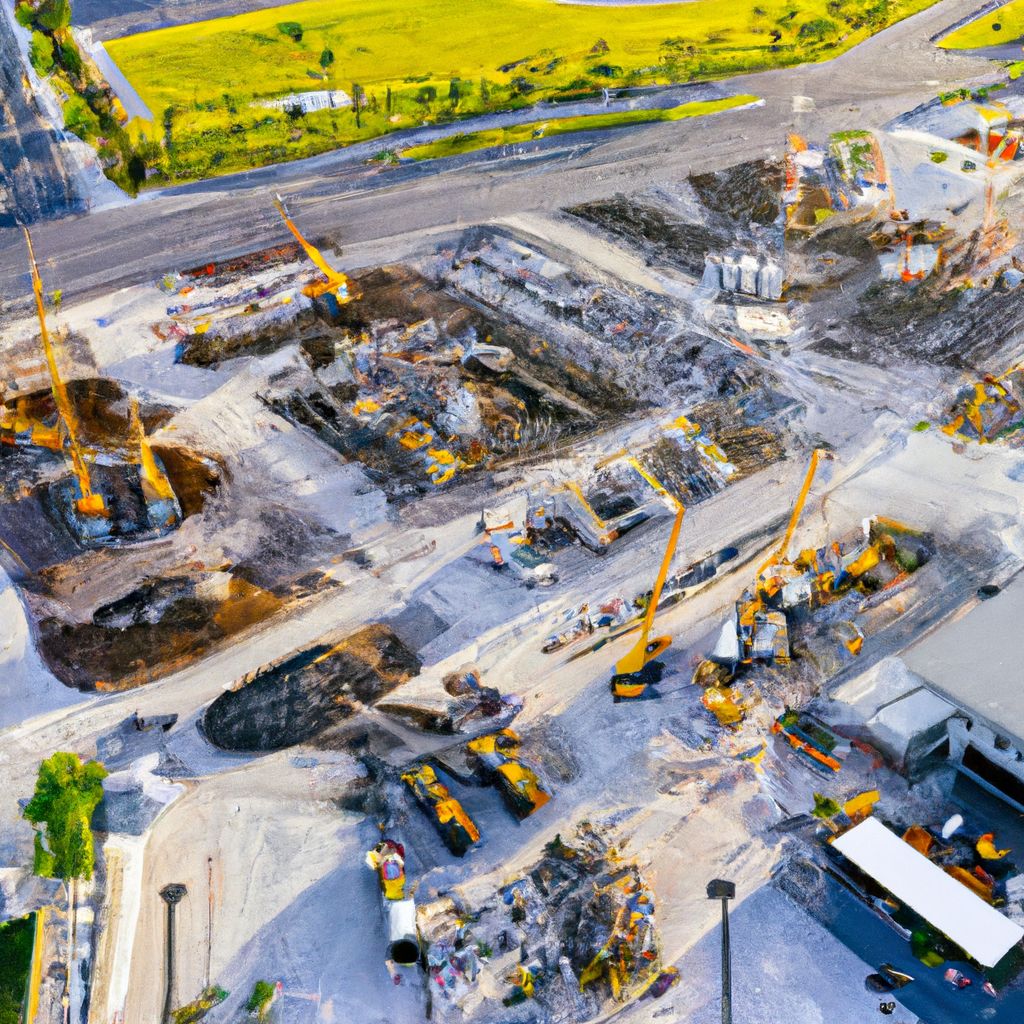Key Takeaways:
- Good project management is essential for successful construction projects, as it helps ensure timely completion, effective communication, and efficient use of resources.
- The choice of construction management software can greatly impact project outcomes, with factors such as functionality, scalability, and integration capabilities playing a crucial role in the decision-making process.
- To navigate the challenges of construction management, it is important to develop and hone key skills such as problem-solving, budget management, time management, and effective communication.
- Statistics and challenges in project management highlight the need for risk management, addressing scope creep, and leveraging data to make informed decisions and improve project outcomes.
- Leadership skills, organizational effectiveness, resource management, and cost tracking are essential skills for successful project management in the construction industry.
- Strategies such as project planning, document management, risk management, monitoring progress, effective communication, and team conflict management contribute to navigating project management challenges.
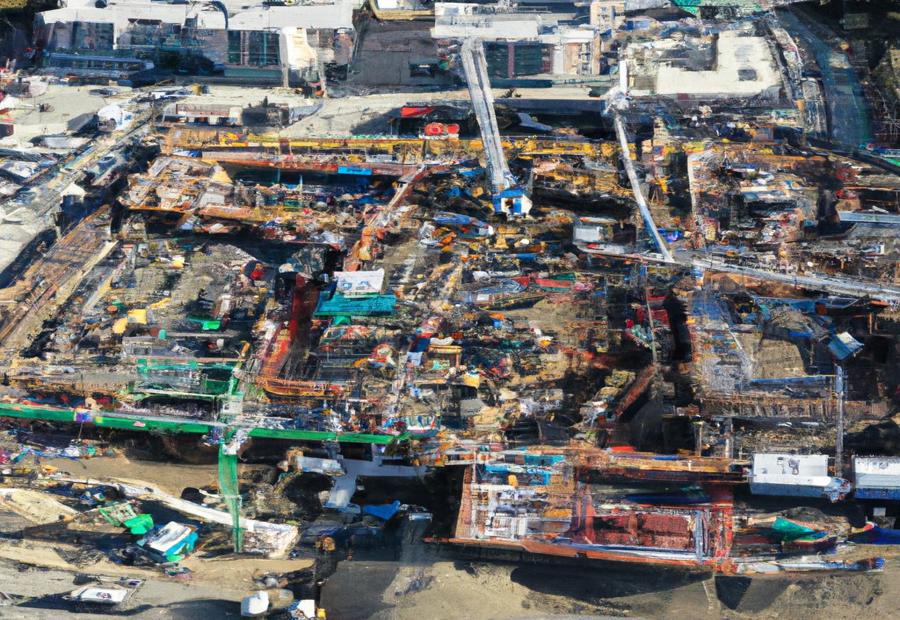


Photo Credits: Build-Wire.Com by Willie Rivera
Navigating the world of construction management can be a daunting task, but with the right skills and approach, success is within reach. In this introduction, we will delve into the key features of construction project management, shedding light on the crucial components that ensure smooth project execution. Additionally, we will explore the importance of good project management, highlighting its impact on timelines, budgets, and overall project excellence. So, buckle up and get ready to embark on a journey through the fundamentals of construction project management.
Key Features of Construction Project Management
Construction project management requires certain key features for successful project execution. Timely completion, within budget, and satisfaction of stakeholders depend on:
- Effective Planning and Scheduling: Defining objectives, tasks, milestones, resources, and time for each activity.
- Scope Management: Clearly defining scope of work, managing changes, and ensuring deliverables match requirements.
- Budgeting and Cost Control: Estimating costs, monitoring expenses, and keeping costs within budget.
- Risk Assessment and Mitigation: Identifying risks, analyzing potential impact, and having contingency plans.
- Quality Assurance: Establishing standards, implementing control measures, and conducting inspections.
- Effective Communication: Communicating expectations, addressing concerns, and keeping everyone informed.
These key features are of utmost importance for project managers. By considering these, they increase the chances of successful outcomes. Technical knowledge, managerial skills, and leadership abilities are essential for navigating project challenges.
Lisa is an inspiring example of effective construction project management. She completed a complex renovation project on time and within budget. Her attention to detail, problem-solving approach, and commitment to quality were crucial. Her story proves that good project management is the foundation for success.
Importance of Good Project Management
The importance of good project management for successful construction projects can’t be overstated. It encompasses budgeting, time management, problem solving, and communication. When done right, it ensures resources are used properly, risks are addressed, and goals are achieved on-time.
Good project management ensures projects are delivered well. It helps with planning, organizing, resource allocation, and risk management. Having a great framework in place means projects can be done quickly and within budget.
Good project management also helps with common issues like scope creep. Risk management techniques help identify and address potential risks before they become problems.
Finally, strong communication among team members is essential to maintain clarity and reduce conflicts. Construction management software can add digital chaos to the mix.
Types of Construction Management Software
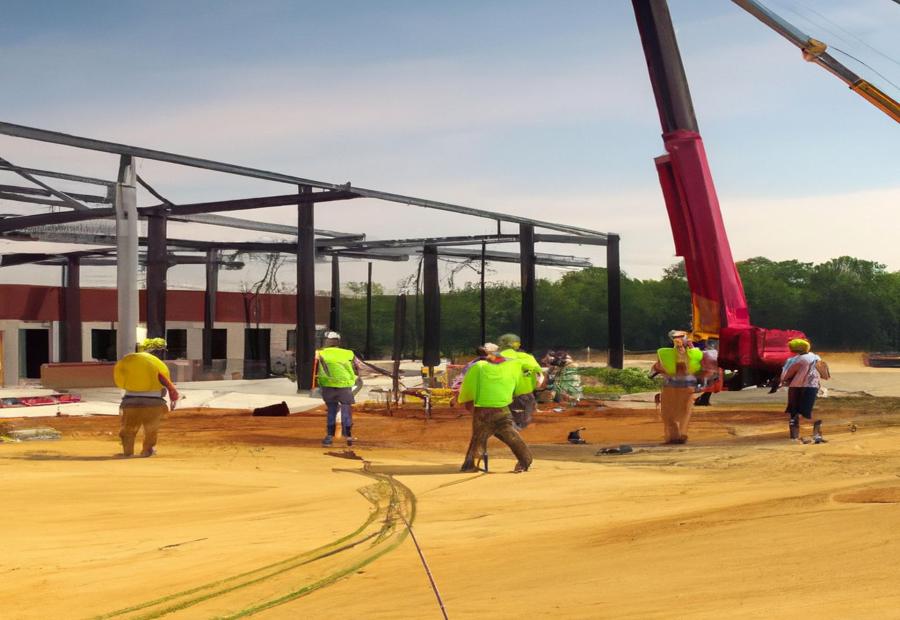


Photo Credits: Build-Wire.Com by Ralph King
In the realm of construction management, one must navigate through various types of construction management software. These tools offer a plethora of benefits and are influenced by several key factors. Let’s dive into the advantages of using construction management software and explore what factors play a role in selecting the most suitable option. Get ready to streamline your construction projects with the right software solutions.
Benefits of Construction Management Software
Construction management software offers lots of advantages to better project results. It makes planning, executing and monitoring projects simpler and faster.
- It boosts efficiency. Coordinating tasks is simpler and teams can work together towards the same goal.
- Communication between project stakeholders is improved. Everyone can share information, files and updates in one place. This makes communication easier and more transparent.
- Project control is stronger. You can track progress, arrange budgets, timetables and allocate resources. Project managers can make more informed decisions to keep projects on track.
- Risk management is better. Software tools can identify potential risks and help you come up with proactive solutions.
- Productivity is increased. Automation of repetitive tasks and efficient resource allocation helps boost productivity. You can also monitor progress in real time to spot problems quickly.
Choosing the right construction management software is important because it can be a nightmare if you get it wrong.
Factors Influencing the Choice of Construction Management Software
Construction management software is essential in the proper planning and execution of building projects. What software to choose depends on compatibility, features/functionality, and scalability.
Compatibility is a must. Building companies need software that can easily work with existing systems and tech used in the organization. This ensures data sharing between tools and platforms.
Features and functionality are also essential. Look for software that provides project scheduling, cost tracking, document organization, and collaboration tools. This will help streamline operations and boost efficiency.
Scalability is another factor. As construction projects become more complex or bigger, software needs to be able to adjust. Scalable software enables easy expansion without compromising performance or effectiveness.
Considering these factors helps building companies select the right software for their needs. The right compatible, feature-rich, and scalable solutions can increase productivity, better project results, and manage building projects effectively.
Tips for Successful Construction Project Management
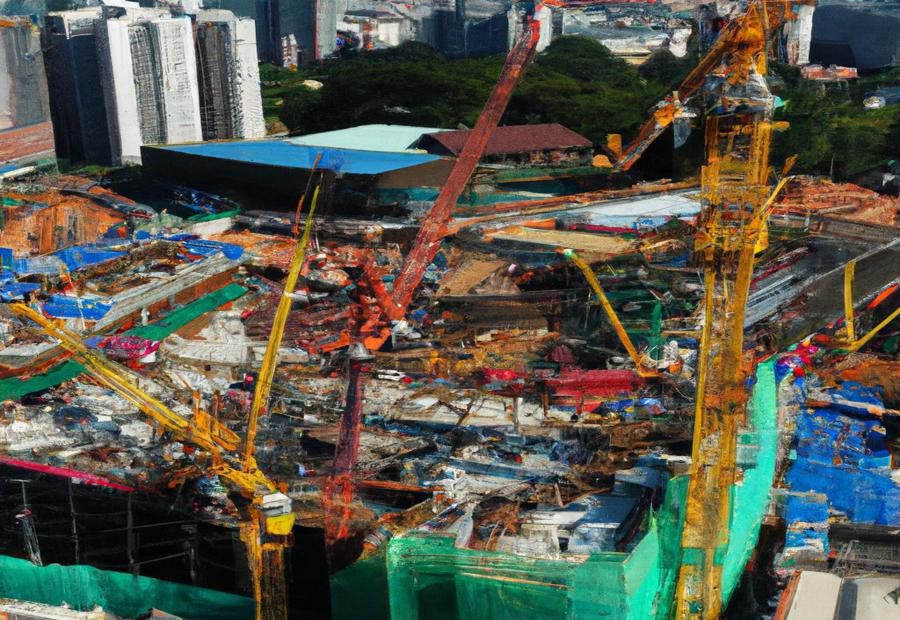


Photo Credits: Build-Wire.Com by Timothy Allen
When it comes to successful construction project management, having the right skills is essential. In this section, we will explore key aspects of construction management and how they can contribute to project success. From problem-solving skills to effective budget and time management, along with strong communication abilities, we’ll discover the important skills needed to navigate the challenges of construction management. So, let’s dive into the strategies and techniques that can make all the difference in achieving successful construction projects.
Problem Solving Skills in Construction Project Management
Problem-solving skills are a must-have for successful construction project management. Challenges are common, and the ability to spot and solve issues swiftly is vital. Developing strong problem-solving skills can help construction project managers overcome obstacles and reach their goals.
To sharpen problem-solving skills in construction project management, use this 6-step guide:
- Step 1: Identify the Problem. Identify the root cause and gather all related info to understand it better.
- Step 2: Analyze the Situation. Check project documents, talk to team members, and research if needed.
- Step 3: Generate Solutions. Brainstorm ideas with everyone involved.
- Step 4: Evaluate Options. Assess each solution on its feasibility, cost-effectiveness, and impact. Think long-term and short-term.
- Step 5: Implement the Solution. Create a plan with tasks and deadlines. Assign roles and communicate throughout the process.
- Step 6: Monitor Results. Track progress and identify any issues. Adjustments may be necessary.
Using problem-solving skills in construction project management leads to efficient decision-making, less delays and costs, collaboration, and ultimately, successful projects. Special software programs or innovative technologies like BIM can be used to enhance problem-solving processes.
A great example is the highway construction project with unexpected geotechnical challenges. The project management team consulted specialists and developed alternative solutions. This proactive approach solved the issue and completed the project within budget and schedule.
In conclusion, problem-solving skills are essential for successful construction project management. Structured approaches and industry-specific knowledge and tools can help construction professionals overcome challenges and deliver projects successfully.
Budget Management Skills in Construction Project Management
Budget management is a must-have for construction project management. Skills involve planning resources, monitoring spending, and making decisions that maximize cost efficiency. Good budgeting strategies help project managers avoid cost overruns and lead to project success.
Accurate Cost Estimation: Budget management skills are needed to estimate costs at each stage of the construction project. This includes analyzing requirements, researching material/labor costs, and considering potential risks/contingencies.
Ongoing Expense Monitoring: Continuous monitoring of expenses is necessary for effective budget management. Project managers must track costs regularly, identify discrepancies, and take corrective action.
Risk Assessment/Contingency Planning: Budget management involves assessing risks that could affect finances. This includes identifying cost overruns due to unforeseen circumstances or changes in scope. Contingency plans must be developed to mitigate these risks.
Vendor Negotiation: Skilled budget management involves negotiating favorable terms with vendors/suppliers. This includes sourcing competitive bids, exploring alternatives, and leveraging relationships.
Change Management: Budget management skills enable project managers to assess the impact of changes on costs. They must evaluate solutions, determine funding requirements, and communicate potential financial implications.
Financial Reporting: Accurate financial reporting is part of budget management. Project managers must provide expenditure updates, prepare statements, and ensure transparency.
Budget management requires project managers to make informed decisions aligned with financial objectives. With these skills, project managers can optimize resource allocation and achieve successful construction project outcomes. Time management skills are also essential.
Time Management Skills in Construction Project Management
Time management skills are a must in construction project management. Careful planning, prioritization, and resource allocation are key for completing projects on time, avoiding delays, and maximizing productivity. Effective scheduling is one time management skill; creating project timelines, setting milestones, and recognizing critical paths are important. Monitoring progress is also essential – comparing actual task completion to the projected timeline and dealing with any issues that arise. Resource allocation is a must too – coordinating labor, equipment, and materials to make sure they’re available when needed.
To enhance time management:
- Tech solutions can streamline processes
- Communication is vital
- Continuous evaluation & improvement are necessary
With good time management, construction project managers can satisfy clients and achieve success.
Communication Skills in Construction Project Management
Communication is key for success in construction project management. It’s vital for successful collaboration, coordination of team members, stakeholders, and clients. Good communication skills enable project managers to share their ideas easily, make decisions efficiently, and manage any issues that may arise.
- Communication must be clear and simple: Project managers should accurately communicate complex technical information to both internal and external parties. This includes giving details of project requirements, progress updates, and any changes that might affect the timeline or budget.
- Listen actively: Project managers should actively listen to their team’s comments, feedback, and ideas. This will create a positive atmosphere where everyone feels valued. By listening, project managers can understand their team better and handle potential issues quickly.
- Negotiation and persuasion: Communication is also necessary for negotiations with suppliers, contractors, subcontractors, and other stakeholders. Project managers must be able to get the best terms while maintaining good relationships.
- Conflict resolution: Construction projects usually involve different stakeholders with different interests. Good communication skills help project managers resolve conflicts by talking things through, finding common ground, and finding solutions that everyone is happy with.
Other than these skills, project managers need to have strong writing abilities for reports, contracts, and other documentation related to the project. Correct communication ensures all stakeholders know the progress of the construction project.
In conclusion, strong communication skills are essential for construction project management. They enable collaboration, understanding of goals, and allow project managers to tackle challenges and achieve success.
Statistics and Challenges in Project Management



Photo Credits: Build-Wire.Com by Billy Jackson
Navigating the challenges of construction management entails understanding the statistics and challenges in project management. From common obstacles to risk management and the impact of scope creep, this section sheds light on the realities faced in the construction industry. Backed by relevant data, we explore the complexities and strategies involved in successfully managing construction projects.
Common Challenges in Construction Project Management
Construction project management can present some typical difficulties. For instance, budget overruns, delays in project timelines, communication issues among team members, and scope creep.
Budget overruns happen because of additional costs, changes in scope or design, or inaccurate cost estimations. This could lead to financial pressure and need modifications to the budget or reallocation of resources.
Delays in project timelines are another regular issue. These can result from things such as bad weather, issues with subcontractors or suppliers, or unexpected site conditions. This can affect the overall schedule and cause extra costs or fines.
Miscommunication among team members is a major challenge that can hold back progress and lead to mistakes or misunderstandings. Establishing useful communication channels and clear lines of responsibility may help to reduce this risk.
Scope creep is when the project’s requirements become bigger than the original plan. This could happen due to stakeholders making extra demands or because of a lack of proper documentation. It is important to manage scope creep properly by clearly specifying project objectives and going over them with stakeholders regularly.
Apart from these challenges, other unique issues might be faced depending on the project’s complexity. However, with proper planning, communication, and risk management strategies, construction projects can manage these problems successfully.
The Sydney Opera House is an example of a challenge in construction project management. This famous landmark had substantial cost overruns and time delays due to design changes, complex engineering for its singular structure, and disagreements between the architect and contractor. Despite the difficulties, the project was eventually finished and has since become a worldwide iconic architectural masterpiece. This shows that even complicated projects with inherent challenges can be managed well with proper planning and problem-solving skills.
Risk Management in Construction Project Management
Risk management in construction project management is key for a successful project finish. Utilizing good risk management plans can help identify, examine, and reduce risks. This minimizes the effect on the project timeline and budget.
Identifying risks is a must. Analyze the project’s timeline, budget, and resources to spot any factors that could be a risk. By being proactive, project managers can make backup plans and assign resources to deal with any issues.
Risk assessment is also vital. Evaluate the probability and effect of each identified risk. This way, project managers can prioritize and assign resources correctly. This quantifies risk to make sure mitigation measures are used for high-risk factors and lower-risk factors get attention too.
Mitigation strategies help manage risks. Strategies involve making steps to stop or reduce the chance of identified risks. For example, safety protocols can be put in place to reduce the threat of accidents. Regular monitoring and inspections can also catch any deviation from the planned schedule early on so there are no major delays.
In conclusion, risk management is essential for cutting down potential risks and making sure projects are finished on time and with the budget constraints. By utilizing effective strategies, project managers can identify, assess, and reduce risks leading to a successful construction project.
Scope Creep in Construction Project Management
Scope creep in construction project management means that the scope of a project grows beyond its initial boundaries. This may be due to changes in client demands, unexpected problems, or bad planning. Scope creep can cause delays, higher costs, and an inefficient project.
Scope creep has harmful impacts on construction projects. It can disrupt the timeline, use up resources, and affect the quality of the work. Good scope management is essential to keep the project on track and meet its goals in the set scope.
Many things cause scope creep in construction project management. These include unclear project aims and needs, poor communication between stakeholders, inadequate risk assessment, and a lack of change control processes. External influences such as regulatory changes or market demands can also lead to scope creep.
To reduce scope creep, construction project managers should set clear aims and needs at the start of a project and communicate these to all stakeholders. They should also have robust change control procedures in place to evaluate and approve any proposed modifications to the scope. Regular communication with stakeholders is essential to manage expectations and deal with scope issues early.
For example, a commercial building renovation had scope creep. The original project was to update the interior with new flooring and lighting fixtures and stick to a budget and timeline. But, the client asked for an elevator and extra office areas. This was not in the plan and needed more time, resources, and cost changes. With the right change control measures and negotiations with the client, the project team managed to finish the renovation within the agreed timeframe despite the extra challenges.
Having the right skills is essential to avoiding construction disasters and completing projects on time and budget.
Essential Skills for Successful Project Management
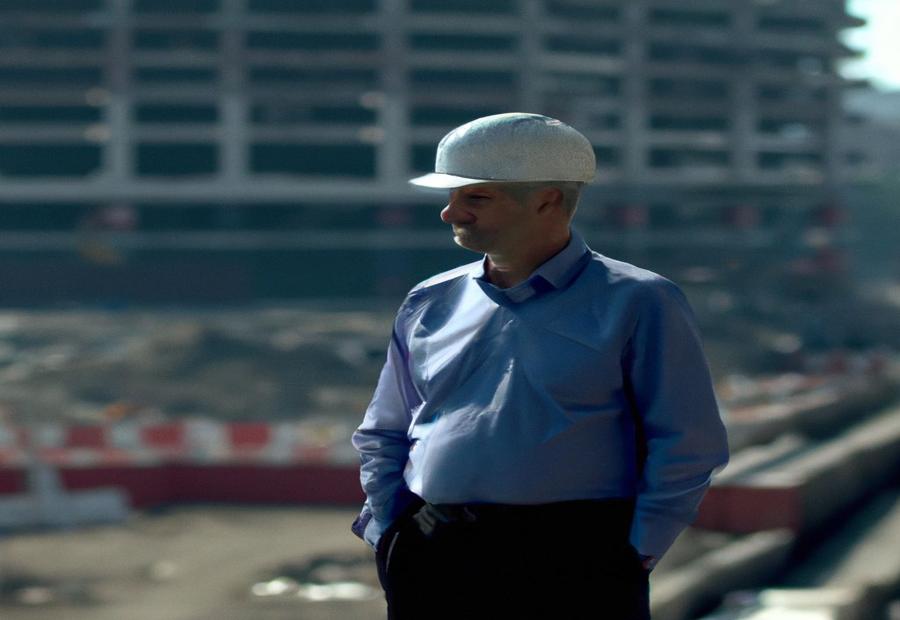


Photo Credits: Build-Wire.Com by Alan Jones
Successfully navigating the challenges of construction management requires a set of essential skills. In this section, we will explore the key skills that are crucial for project managers to achieve success. From leadership skills to organizational effectiveness, resource management, and cost tracking, we will uncover the critical areas that play a vital role in ensuring project success. By acquiring and honing these skills, project managers can effectively tackle the complexities and demands of construction management.
Leadership Skills in Project Management
In construction project management, leadership skills are very important. A project leader must know how to inspire and motivate their team, set a clear vision and goals, and make smart decisions. Crafting a vision is one of the core elements of leadership. A good project manager builds a vision for their project, including objectives and milestones, and effectively communicates it to the team to keep everyone focused on the same goal.
Constructing a team is also a huge part of leadership in project management. A strong leader will build and manage a great team. This includes choosing the right people, assigning roles based on strengths, encouraging collaboration, and maintaining a positive work environment. Resolving conflicts is also essential for project success. If conflicts arise, a strong leader can handle them by allowing everyone to talk, listening to all points of view, and making compromises that benefit the project.
Unfortunately, leadership skills in construction project management are sometimes forgotten or not given enough attention. It is important to recognize their value and invest in developing these skills. Good leadership can help project managers guide teams through difficult problems, innovate, build strong relationships with stakeholders, and stick to timelines and budgets.
Many successful construction projects have been led by smart leaders. These leaders were able to motivate their teams and facilitate communication between stakeholders. Their ability to make decisions while considering various factors led to successful projects.
By understanding the importance of leadership in project management and improving these skills, construction professionals can better handle challenges and increase project success.
Organizational Effectiveness in Project Management
Organizational effectiveness in project management is a must for any organization’s success. It needs strategic alignment of project goals with organizational objectives, efficient utilization of resources, and smart decisions. It makes sure projects are executed within budget and time limits, and meet quality standards. It needs effective structures and processes.
A key part of organizational effectiveness in project management is specifying roles and responsibilities within the project team. This involves defining roles, assigning tasks, and setting up clear communication channels. A successful project team has defined roles and responsibilities, which helps to account for everyone and reduces misunderstandings.
Furthermore, efficient communication between the project team and stakeholders is critical. Open and transparent communication ensures everyone is on the same page about goals, due dates, and expectations. It also helps spot potential issues or risks quickly, for quick resolution.
Moreover, efficient resource management is essential for organizational effectiveness in project management. This includes allocating resources such as money, people, equipment, and materials efficiently, to get the most out of them and reduce waste. Monitoring resource usage and making adjustments is also important for optimal performance.
Overall, organizational effectiveness in project management is necessary for successful project execution. By aligning goals with objectives, setting up clear roles and responsibilities, facilitating effective communication, and managing resources efficiently, organizations can enhance their overall project performance and achieve desired outcomes. However, managing resources in project management is like juggling chainsaws – you must not drop any!
Resource Management in Project Management
Resource management in project management is key for smooth execution, reduced risks, and maximum results. Assigning tasks based on team members’ abilities is essential for efficiency and productivity. Utilizing resources optimally is a must, and accurately forecasting future requirements is a must. It’s also crucial to monitor performance of assigned resources throughout the project cycle. Software tools can assist with resource tracking, allocation, and availability. Plus, don’t forget to watch the budget!
Cost Tracking in Project Management
Accurate budgeting is made possible through cost tracking in project management, which allows project managers to create and monitor budgets for construction projects. Closely tracking expenses such as labor, materials, equipment, and subcontractors provides invaluable data for financial analysis. Utilizing this data, project managers can identify discrepancies, areas of unnecessary spending, and potential cost savings. Proper cost tracking contributes to successful financial performance and ensures projects are completed within budget constraints.
Navigating project management challenges is like trying to find a needle in a haystack, while blindfolded and on a unicycle!
Strategies for Navigating Project Management Challenges
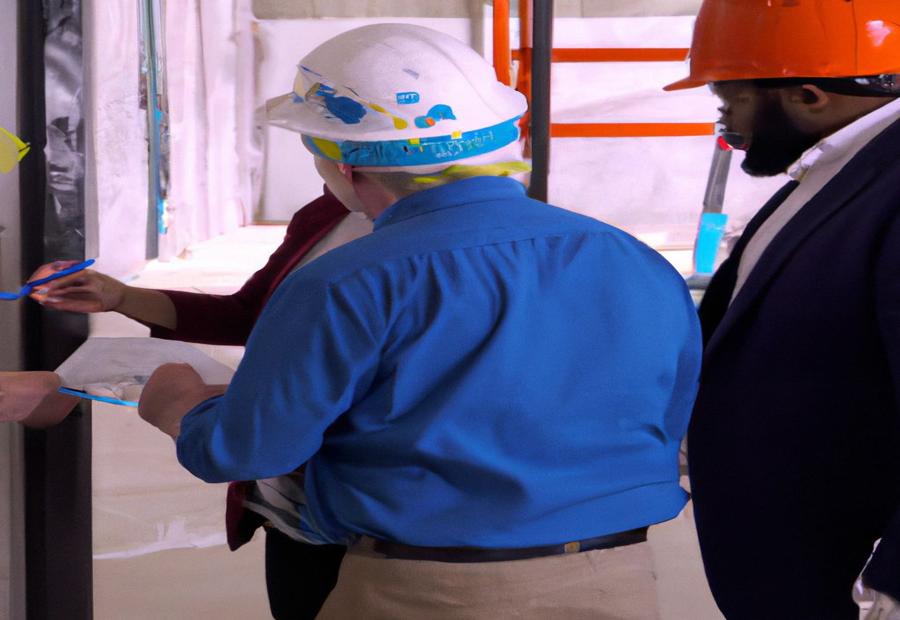


Photo Credits: Build-Wire.Com by Harold Rodriguez
In the world of construction management, navigating project management challenges requires a strategic approach. In this section, we will explore key strategies that can help overcome obstacles and ensure successful project outcomes. From effective project planning and document management to risk mitigation and progress monitoring, as well as communication tactics and conflict resolution within the project team, we will discover the essential tools for tackling the complexities of construction management head-on.
Project Planning and Document Management
Project planning and document management are key in construction project management. These processes are necessary for organizing and controlling project elements, while making sure there’s good communication and documentation.
Efficient project planning involves defining objectives, timelines, resources and tasks. This makes sure everybody involved knows the project’s aims and needs.
Good document management is about creating, organizing and maintaining project docs like contracts, permits, drawings, change orders and progress reports. This helps all team members find info quickly, to help with decisions.
Clear communication is vital for successful project planning and document management. It needs regular project status updates, coordination between teams and stakeholders, and sharing info. This avoids misunderstandings and delays.
Plus, project planning and document management include risk mitigation. You need to identify risks, make strategies to reduce them, plan for challenges, have contingency plans and check docs for safety regulations.
Team members working together is also vital. This encourages conversation and sharing info, making project planning more effective.
Overall, project planning and document management are key for successful construction project management. They make sure projects happen as planned, while controlling risks and maximizing efficiency.
Also, risk management and monitoring progress are essential skills for preventing problems. So, project planning and document management are crucial for staying on track and avoiding issues.
Risk Management and Monitoring Progress
Risk management and monitoring progress are key in Construction Project Management. Project managers must detect potential risks that can affect the project. This involves looking at factors such as scope, budget, external influences, and stakeholder expectations.
Once risks are identified, analyze how likely they are to happen and how much impact they’ll have. This helps assign resources properly.
Then, create strategies to mitigate these risks. This could involve preventative measures, backup plans, or transferring risk through insurance or contracts.
To make sure the project stays on track, the project manager needs to keep an eye on key performance indicators (KPIs), milestones, and compare actual progress with the planned schedule. If there are any issues or deviations, changes might need to be made to the resource allocation, schedule, or actions taken to meet project objectives.
Project managers should keep stakeholders informed on risks, mitigation strategies, and any changes in the project’s status. Additionally, they need to review and update risk management plans regularly. To create an atmosphere of proactivity, they should promote open communication and collaboration.
Risk management and progress monitoring help construction projects stay successful. This means less unexpected delays, costs, and disruptions. Conflict resolution and communication are essential for successful construction project management.
Communication and Team Conflict Management
Construction projects can be derailed by communication breakdowns and team conflicts. To prevent this, project managers should:
- Share info & updates regularly with the team.
- Listen attentively to their concerns & feedback.
- Implement conflict resolution strategies.
- Define each team member’s roles & responsibilities.
- Encourage collaboration, trust & respect.
Moreover, proper resource management is essential for successful completion. This means ensuring sufficient resources & optimizing their utilization. Additionally, cost tracking should be done accurately to monitor expenses, allowing budget control, cost-saving, & adjustments as needed. This helps avoid financial conflicts and ensure transparency.
A real-life example of this is a high-rise construction project that was saved from delays & poor quality by implementing these practices.
Conclusion



Photo Credits: Build-Wire.Com by Patrick Smith
Construction management is a complex job. It includes overseeing the design, planning and construction of a project from start to finish, while adhering to budgets and schedules.
Managing construction requires great resource coordination. Labor, materials and equipment all need to be synced up for smooth operations. Scheduling and planning are essential to maximize productivity and avoid delays. Plus, talking and working with subcontractors, suppliers and other stakeholders is needed to get materials and services on time.
Construction managers must also manage different stakeholders’ needs and expectations. Clients, architects, engineers and regulatory authorities all have different objectives. It’s up to the construction manager to balance these goals, meet all standards and regulations, and meet the customer’s expectations. Negotiation and problem-solving skills are essential to handle conflicts.
Unexpected issues may arise during construction, too. Weather, supply chain issues, design changes, or site conditions can all affect the timeline and cost of a project. Construction managers must be adaptive and proactive in addressing these issues to minimize their impact. This may mean making quick decisions, revising plans, or engaging in contingency measures.
To summarize, successful construction management is about resource coordination, stakeholder management and dealing with unexpected challenges. Mastering these skills will enable construction managers to complete projects within budget and schedule.
Some Facts About Navigating the Challenges of Construction Management:
- ✅ 70% of projects fail to deliver desired results. (Source: Team Research)
- ✅ 42% of organizations don’t understand the importance of project management. (Source: Team Research)
- ✅ 73% of organizations that use a formal project-management approach have met their goals. (Source: Team Research)
- ✅ Key challenges in project management include unclear and unrealistic goals and objectives, scope creep, and lack of communication. (Source: Team Research)
- ✅ Essential skills for successful project management include planning and management, communication and leadership skills, and risk management. (Source: Team Research)
FAQs about Navigating The Challenges Of Construction Management
What are the common budgeting issues in construction management?
Common budgeting issues in construction management include underestimating project costs, unexpected expenses, inaccurate budget allocation, and lack of control over project expenditures.
How can a lack of accountability affect construction management projects?
A lack of accountability in construction management can lead to delays, cost overruns, poor quality work, and conflicts among team members. It can also result in a lack of ownership and responsibility for project outcomes.
What are the key skills needed for effective risk management in construction projects?
The key skills needed for effective risk management in construction projects include the ability to identify potential risks, assess their impact, develop mitigation strategies, and proactively monitor and manage risks throughout the project lifecycle.
Why is effective communication crucial in construction management?
Effective communication is crucial in construction management because it ensures everyone involved in the project has a clear understanding of goals, expectations, and responsibilities. It helps in managing conflicts, coordinating activities, and maintaining transparency and trust among stakeholders.
How does a formal project management approach contribute to project management efficiency?
A formal project management approach provides a structured framework for planning, executing, and controlling projects. It helps in establishing clear goals and objectives, defining project scope, allocating resources effectively, and monitoring progress. This approach improves project management efficiency by reducing errors, enhancing coordination, and ensuring timely completion of tasks.
What role do regulatory bodies play in construction management?
Regulatory bodies play a crucial role in construction management by enforcing industry standards, safety regulations, and legal requirements. They ensure that construction projects comply with applicable codes and regulations, thereby promoting safety, quality, and adherence to legal obligations.
